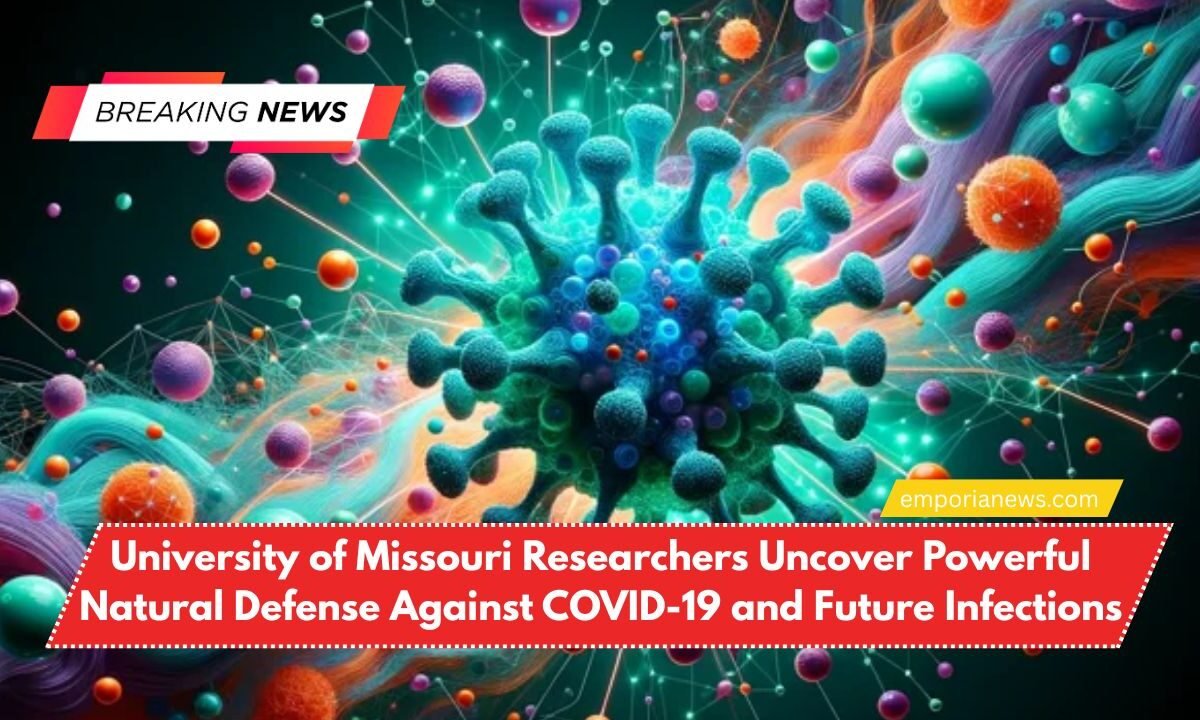Viruses and bacteria are constantly attempting to infiltrate the human body, but scientists at the University of Missouri (Mizzou) have found that the answer to fighting these deadly pathogens may already lie within us.
Their new research highlights a naturally occurring class of proteins—defensins—as promising agents in the battle against infectious diseases.
What Are Defensins? Nature’s Own Antimicrobial Warriors
Defensins are small, naturally occurring proteins in the human body that play a vital role in our innate immune system.
These proteins act like first responders, rushing to infection sites to fight invading pathogens. However, in certain areas of the body, defensins aren’t always strong enough to mount a complete defense.
A team from Mizzou’s College of Agriculture, Food and Natural Resources, led by microbiologists Dr. Piyush Baindara and Dr. Dinata Roy, is now exploring how defensins could be boosted or repurposed to block dangerous viruses—including SARS-CoV-2, the virus responsible for COVID-19.
New Research Shows Defensins Can Block COVID-19 Entry
In a groundbreaking study published in The Microbe, researchers used advanced computer modeling to show how defensins can block SARS-CoV-2 from entering human cells.
“Viruses need a specific receptor to get inside our cells—like a key fitting into a lock,” explains Baindara. “In COVID-19’s case, the virus uses its spike protein to latch onto the ACE2 receptor in human cells. But we found that defensins can attach to both the ACE2 receptor and the spike protein. This dual binding essentially blocks the virus from entering.”
This discovery could revolutionize how we approach viral infections—not just COVID-19 but potentially many others.
Future of Antiviral Drug Development: A New Frontier
Developing new antiviral drugs typically takes years, if not decades. But this breakthrough opens the door for targeted protein engineering, where defensins could be enhanced or formulated into supplements or drugs that fortify the body’s immune response.
“This was a thrilling discovery,” said Baindara. “If this pathway can be replicated and refined, we might one day see a new class of antiviral or antibiotic therapies derived from defensins.”
The research community is now hopeful that this discovery will serve as a foundation for further clinical studies and pharmaceutical innovation.
Exploring the Unknown: The Untapped Potential of Microbes
Mizzou’s efforts reflect a broader mission in science—to understand the microbial universe, most of which remains uncharted. According to researchers, less than 1% of the microbial species on Earth have been identified.
“Microbes are everywhere—on our skin, in the soil, in the air—and they’re constantly evolving,” Baindara noted. “Our aim is to stay ahead of viral mutations and antibiotic resistance. Since different viruses bind to different receptors, we can now explore how defensins might neutralize other threats, like influenza, RSV, or even bacterial infections such as tuberculosis.”
This adaptability makes defensins a versatile and potentially universal antiviral solution, with the ability to serve as a broad-spectrum defense against a wide range of pathogens.
The University of Missouri’s research into defensins as a natural antiviral agent could mark a pivotal moment in medical science.
By uncovering how these proteins interfere with viral entry mechanisms—particularly in blocking SARS-CoV-2 from binding to human cells—the Mizzou team has laid the groundwork for a new generation of antiviral drugs.
Their discovery is not just promising for COVID-19 but could offer broad protection against future viral and bacterial infections.
As the world continues to face evolving infectious threats, repurposing our own immune tools like defensins may prove to be one of our strongest assets in the global health arsenal.




